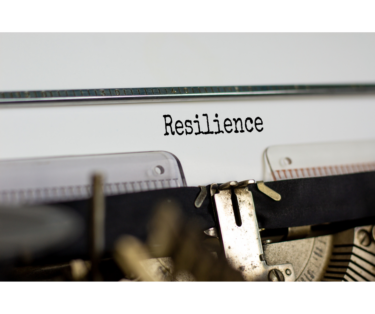“Resilience: The ability to respond to and recover from challenging situations.”
How To Build Resilience During Tough Times
There’s no question that we are living through incredibly difficult times.
From the coronavirus pandemic to the economic crises facing many countries, individuals and businesses are facing uncertainties which, for many, are unprecedented.
To perform at your peak potential through tough times requires resilience. The more resilient you can become, the more power, confidence and control you will be able to have when the unexpected happens.
What Is Resilience?
Resilience is the ability to respond to and recover from challenging situations.
It is not about avoiding problems but developing coping strategies that can help you to deal with setbacks when they do come along.
A lack of resilience within business can quickly lead to further problems. Teams can become overwhelmed, leading to adverse stress effects on people’s emotional and physical health. Conditions such as depression, anxiety and chronic fatigue can become more common within teams that are not resilient. Extremes of stress are also linked to illnesses such as heart disease and stroke.
As well as adverse effects on individuals, companies that are not resilient can experience a decline in productivity, poor or damaged relationships with clients or customers – and some may face going out of business altogether.
The good news is that resilience is a skill which can be honed and improved over time.
Why building resilience can benefit teams
When you build resilience your team can benefit in a number of ways.
Resilient teams are more flexible and patient, becoming able to move and adapt when the situation requires it.
As you grow resilient, you will become more capable of dealing with any scenario that comes your way, which will not only make you more confident, but will also help to future-proof your business as a result.
For businesses, becoming more resilient can mean:
- Improved productivity
- Better communication
- Development of great leaders
- Healthier work environments
- Preparedness for future challenges
For individuals, improved resilience can also lead to:
- Greater self-esteem and confidence
- Better mental health
- Job satisfaction
- Better stress management
6 ways to build resilience amongst your teams
Growing resilience is a process of continual learning. Here are six ways in which you can grow your resilience.
1 – Accept your current situation
Learning to accept your current situation is a key part of becoming more resilient.
Rather than focusing on how things were last year or six months ago, try to focus on what your current situation is right now.
This may mean accepting that a situation may be unfair, disappointing or difficult, which can be hard to do. However, being present in the moment and concentrating on things as they are is the first step in moving towards a better future.
Be realistic and fair when assessing your current situation. Don’t romanticise it or catastrophize either. Simply focus on the facts.
Remember that you will never be able to control the outcome of every situation, but you can control how you feel about it.
2 – Grow your self-awareness
Self-awareness is all about understanding your own personality. As you become more self-aware, you will grow your resilience by understanding how you’re likely to react in different circumstances.
Ask yourself questions such as: what are your strengths and weaknesses? What really motivates you? What triggers you or causes you stress? How do you usually react when things go wrong? How do others perceive you?
By getting to know yourself, you can identify areas you need to improve to cope well when things go wrong, such as stress management.
It’s also worth identifying elements of self-care in your daily routine which help you become calmer and more focused. Self-care looks different for everyone but may include things such as physical exercise, going for a daily walk or run, or taking up mindfulness and meditation, which can help you to remain fully present in the moment.
3 – Build positive relationships
Building resilience means having the right team around you and nurturing positive relationships within that team.
This takes time and requires individuals to support one another. Having a culture in which people feel listened to and supported helps to encourage motivation and increases productivity.
It’s also important to identify common goals so that all team members are committed to achieving the same success. As your team’s relationships grow and become stronger, so too does your resilience.
4 – Use pressure to your advantage
We all know what it’s like to feel pressure at work. Often, we experience the negative effects of pressure: feeling overwhelmed, anxious or stressed, wondering how we are going to cope in a particular situation.
Feelings of stress or anxiety are a result of our emotional brain – or ‘monkey mind’ – taking control of our reactions to pressure, but there are ways to override this.
You can soothe your inner monkey by reassuring yourself that you’ve been in situations of pressure before and that you have dealt with them, as you will deal with this. Remind yourself explicitly of times when you have succeeded in the face of challenges.
You can also try to use the ‘future history’ technique to plan out what you will do when facing different outcomes. By visualising what could happen, even in the worst-case scenario – and crucially what you will do about it – you can become more confident in your ability to deal with that situation if it does occur.
5 – Learn from bad experiences
Sometimes things will go wrong.
Those things may have been within your control or out of your control, but if you want to become more resilient, it’s important to look back objectively when things go wrong to learn as much as you can from them.
Think of challenges as lessons, opportunities to learn. Even if you didn’t deal with a challenging situation as well as you could have done, take the time to reflect afterwards: how well did you handle that situation? What did you do well? Is there something you could have done differently? What would you do if you faced the same situation again next year?
Part of learning from experience involves listening to other people involved, too. Encourage your team to share their experiences, challenges, and how they felt.
Bad experiences can still be useful, so try to take as much as you can from them to help you become more resilient in the future.
6 – Look towards the future
While it’s essential to be present and focus on the situation you are facing right now, part of being resilient is having the ability to look towards the future and how you would like it to be.
Don’t get too bogged down in the past, but take your current situation and think about what a better future might look like.
Then think about what it will take to achieve that better future: what is the first step you can take today to make it happen?
Challenging situations may require you to change your goals for the near future, but by being honest, humble and optimistic, you can begin to take the small steps you need to put you on that path.
Find out more
If you’d like to find out more about how you and your team can build resilience and develop a peak performance mindset, get in touch with us now.
You can also watch or listen to our podcast below, where our CEO Richard Newman shares his personal story of staying resilient through the COVID pandemic.
The Body Talk Podcast – Staying Resilient In Difficult Times from Body Talk on Vimeo.
















